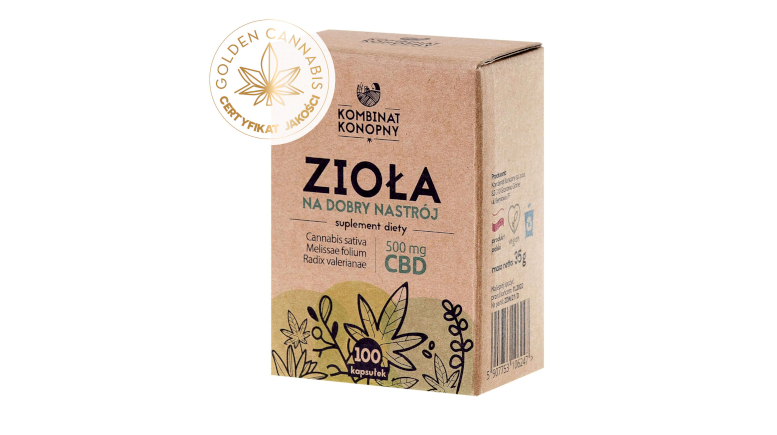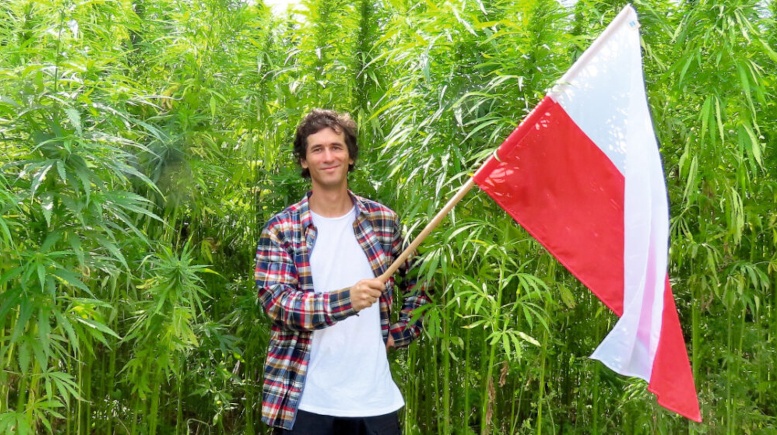Poland’s highest administrative court has ruled against the country’s main public health agency and affirmed the legality of unprocessed products made from the hemp plant’s flowers and leaves.
In doing so, the Supreme Administrative Court ruled that Poland’s Chief Sanitary Inspectorate (GIS) wrongly ordered off the market capsules filled with ground-up hemp plant tops introduced by hemp company Kombinat Konopny in 2019.
“The judgment that was passed is probably the first case in Poland – or in Europe – in which the court did not limit itself to mindlessly rewriting the position of the authorities, but acquainted itself with the case in a matter-of-fact manner,” said Maciej Kowalski, Kombinat Konopny’s CEO.
“Officials who have deliberately abused, concealed and misrepresented will now be held personally responsible,” Kowalski said.
Flawed interpretation
While affirming that flower-based extracts such as CBD fall under EU food safety rules, the court said the GIS interpretation of those rules was flawed regarding plant tops in their raw state, and cited the agency for gross procedural errors in its sanctioning of Kombinat Konopny.
When the company was ordered to remove the product, “Zioła na Dobry Nastrój” (“Herbs for a Good Mood”) from the market in 2019, Kombinat Konopny immediately took GIS to court instead of simply defending itself against the agency’s ruling, a common course of action by companies charged with GIS violations.
While a first ruling in the case by a provincial administrative court in Warsaw dismissed Kombinat Konopny’s complaint, the company’s appeal eventually led the high court to issue a detailed 30-page decision against GIS – a ruling that is final.
Ignoring the evidence
Foods that do not have a record of having been consumed in the European Union before May 15, 1997 are subject to strict rules and onerous food safety tests in order to be placed on the market, under a regulation on “novel” – or new – foods put in place that year.
“(GIS) first misinterpreted the provisions of the Novel Food Regulation . . . and then carried out incomplete and minimized evidentiary proceedings, ignoring documentary evidence submitted by the applicant, as well as evidence produced by the authority itself and known to it ex officio,” the court wrote in the decision.

“It was decided that the food containing parts of the hemp herb is not subject to the regulation . . . on novel food,” the court said of the 1997 rule.
Beata Plutowska, a specialist in food chemistry who is Kowalski’s wife and a partner in the business, assembled historical documentation of hemp flowers used as food in Europe before 1997 as argumentation in Kombinat Konopny’s case.
“The undoubted evidence presented by the party in the framework of the proceedings in question indicated the history of consumption of hemp herb both as food and as a supplement to a normal diet,” the high court found.
Procedural violation
In addition to breaching the Novel Food Regulation, the court found that GIS violated administrative procedure “by conducting incomplete evidence proceedings and any evaluation of the collected evidence,” and by “appointing an inadequate opinion of an advisory body – resulting in the determination that the powder of the Cannabis sativa L. herb is a novel food.”
The case in Poland could be considered a landmark of sorts, as hemp stakeholders in other EU countries have faced similar problems over hemp plant tops. For example, Germany’s Federal Court of Justice last year annulled charges against a group of Braunschweig hemp tea sellers, paving the way for the sale of food products based on hemp flowers and leaves on the German market.
Also last year, Lithuania passed a law that clarified producers may grow and sell hemp flowers on the domestic market. Before the new law, Lithuanian farmers could grow and export hemp flowers, but only seed and straw were legal to sell in-country.

